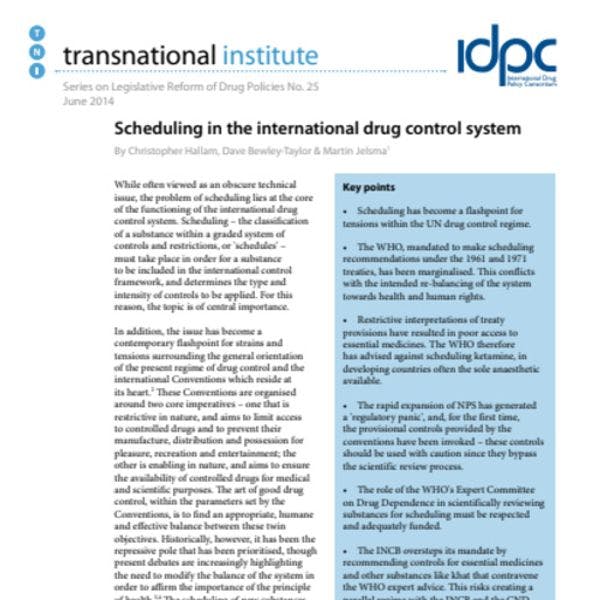La classification des stupéfiants dans le système international de contrôle des drogues
Ce rapport souligne les failles relatives au système international de classification des drogues, et propose des recommandations clés afin d’assurer la mise en place d’un système basé sur la santé et les preuves disponibles. Pour en savoir plus, en anglais, veuillez lire les informations ci-dessous.
Abonnez-vous à l'Alerte mensuelle de l'IDPC pour recevoir des informations relatives à la politique des drogues.
While often viewed as an obscure technical issue, the problem of scheduling lies at the core of the functioning of the international drug control system.
Scheduling – the classification of a substance within a graded system of controls and restrictions, or 'schedules' – must take place in order for a substance to be included in the international control framework, and determines the type and intensity of controls to be applied.
The issue has become a contemporary flashpoint for strains and tensions surrounding the general orientation of the present regime of drug control and the international Conventions which reside at its heart.
The approaching United Nations General Assembly Special Session (UNGASS) on 'the world drug problem' of 2016 may provide an opportunity for the re-examination of current theory and practice in relation to scheduling, and to the elaboration of improved arrangements.6 Amongst the most prominent of present stresses are disputes surrounding the proper role of UN drug control bodies in the scheduling process – especially those of the International Narcotics Control Board (INCB) and the WHO. However, we will suggest that the part played by the CND and states parties is also fraught with difficulties.
Keep up-to-date with drug policy developments by subscribing to the IDPC Monthly Alert.
Téléchargements
Sujets
Régions
Profils associés
- Transnational Institute (TNI)
- International Drug Policy Consortium (IDPC)
